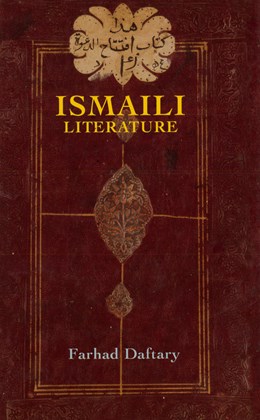Ismaili Literature A Bibliography of Sources and Studies
I.B. Tauris in association with the Institute of Ismaili Studies
Until the middle of the 20th century, the Ismailis were studied and judged almost exclusively on the basis of evidence collected or fabricated by their enemies. As a result, a variety of myths and legends circulated widely, both in Muslim societies and in the West, regarding the teachings and practices of the Ismailis. The breakthrough in Ismaili studies came with the recovery and study gf numerous genuine Ismaili texts that had been preserved in private collections in India, Central Asia, Syria, Yaman and other regions. Many of these texts have been edited, translated and published since the 1950s, thus contributing to the impressive progress in modem Ismaili scholarship.
In this work, Farhad Daftary takes stock of the progress in Ismaili studies from pre-modern and early modern times until today. After a general survey of Ismaili history and the relevant primary sources for its different periods, and an overview of Ismaili studies, the author presents an annotated listing of all published primary sources produced in medieval and early modern times, by Ismaili authors as well as other Muslims, on Ismaili history and doctrines.
The book also contains a comprehensive bibliography of secondary studies, covering all aspects of Ismaili history and thought, Fatimid political history and institutions, as well as art and archaeology. In addition, certain peripheral yet relevant areas of study have been covered to various extents, such as the famous Ikhwān al-Ṣafāʾ and the Druzes who originally split away from the Ismailis in the 5th/11th century. A selection of Ismaili-related theses and lists of Ismaili imams and dāʿīs have also been included. In terms of different languages, publications in Arabic, Persian, Tajik (Cyrillic) and Urdu are represented in a comprehensive manner; and similarly, all studies in the main European languages have been covered.
The result of more than three decades of research, Dr. Daftary’s Ismaili Literature will be an invaluable work of reference and essential tool of research for scholars and students of general Islamic and Ismaili studies.
Preface
Abbreviations
1. Ismaili History and its Literary Sources
2. Ismaili Studies: Medieval Antecedents and Modern Developments
3. Primary Sources
A. Works by Ismaili Authors
B. Collective Ismaili Works
C. Anonymous Ismaili and Pseudo-Ismaili Works
D. Rasāʿil Ikhwān al-Ṣafāʿ, by an Anonymous Group of Authors
E. Selected Works by Non-Ismaili Muslim Authors
4. Studies
5. Selected Theses
Appendix: Genealogical Tables and Lists
‘An excellent book that will help to systematize Isma‘ili studies and be a useful reference work for scholars in this field’
- Moojan Momen, Islam and Christian-Muslim Relations
‘a fine work and should find a ready home in the reference section of any Middle East or Islamic studies collection.’
- Erik S. Ohlander, MELA NOTES
Farhad Daftary is Head of the Department of Academic Research and Publications at The Institute of Ismaili Studies. He is consulting editor of Encyclopaedia Islamica, a member of the Advisory Board of the Encyclopaedia of Islam (3rd edition), as well as the general editor of ‘Ismaili Heritage Series’ and ‘Ismaili Texts and Translations Series’. He is the author and editor of several acclaimed books and numerous articles in the field of Ismaili studies. His publications include The Ismāʿīlīs: Their History and Doctrines (1990), The Assassin Legends: Myths of the Ismaʿilis (1994), Mediaeval Ismaʿili History and Thought (1996), A Short History of the Ismailis (1998), and Intellectual Traditions in Islam (2000).

